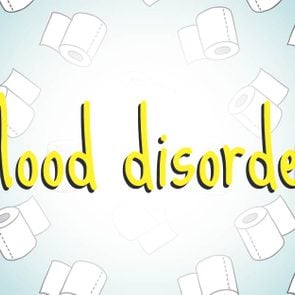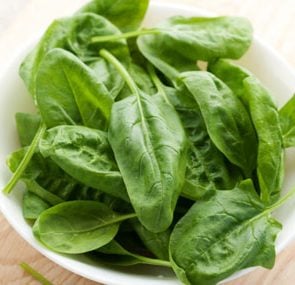Why Is My Poop Green? 9 Most Common Reasons
Updated: Sep. 25, 2020
Green or greenish poop can be normal and has a lot of common causes behind it, from eating green foods to taking certain medications.
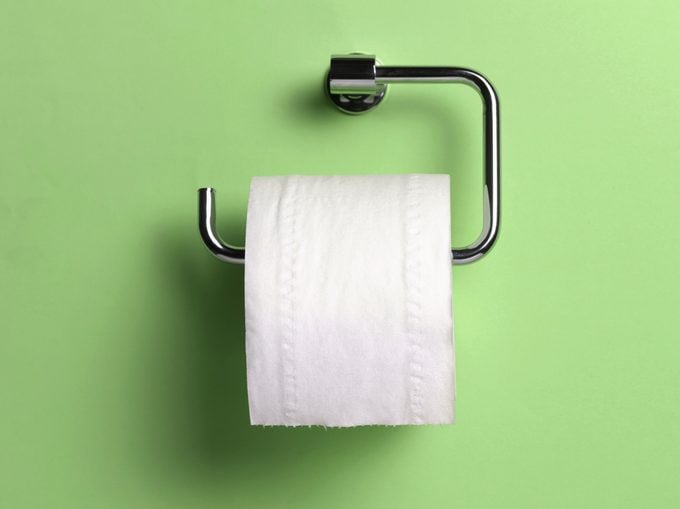 It may be alarming to see green poop in your toilet bowl, but it isn’t necessarily a cause for concern. All stool starts out as greenish-yellow, says Baltimore colon and rectal surgeon, Jeffery Nelson, MD, the surgical director at The Center for Inflammatory Bowel and Colorectal Diseases at Mercy Hospital in Baltimore.
It may be alarming to see green poop in your toilet bowl, but it isn’t necessarily a cause for concern. All stool starts out as greenish-yellow, says Baltimore colon and rectal surgeon, Jeffery Nelson, MD, the surgical director at The Center for Inflammatory Bowel and Colorectal Diseases at Mercy Hospital in Baltimore.
Greenish-yellow is the color of bile, a fluid made by the liver that aids in the digestion process by breaking down fats into fatty acids for absorption and use by the body. As food makes its way down the digestive tract, it is stained by bile, which constantly drains into the gut. The liver makes bile and stores it in the gallbladder, the tiny sac that releases bile as it is needed. (Here are the signs your gut bacteria are unhealthy.)
During digestion, the greenish-yellow color becomes increasingly brown. But, there are factors that can interfere with that process. Here’s a closer look at the underlying reasons why your poop is sometimes green.
You have a foodborne infection
When food moves faster than usual through your gastrointestinal (GI) tract, it’s more likely to come out on the other end with a yellow to greenish tinge. Foods move faster through your GI tract when your gut is in some form of distress—such as when you have a foodborne infection, according to Kumar Desai, MD, gastroenterologist, hepatologist, and pancreaticobiliary specialist in Thousand Oaks, California.
Foodborne infections are caused by a variety of bacteria, viruses, and parasites. Some foodborne infections, such as Salmonella, are transmitted by ingesting contaminated food (or the droppings of infected animals), according to the Centers for Disease Control and Prevention (CDC).
Others, such as norovirus, can be transmitted both by ingesting contaminated food and through direct contact with another person who has been infected. One way you’ll know if your poop is green due to a foodborne infection is if you have other symptoms like diarrhea, vomiting, and stomach cramping. (Check out the 7 signs of food poisoning you should know.)
You have an intestinal parasite
An intestinal parasite is an actual organism living in your intestinal tract. Many intestinal parasites are transmitted via food and water, although some can be transmitted via person-to-person contact. The most common intestinal parasites in the U.S. are Giardia and Cryptosporidium, according to the CDC.
Both of these intestinal parasites are most commonly transmitted through ingesting contaminated water, and both can cause your poop to move through your GI tract quickly enough to cause diarrhea, which can be green in color. (These are 9 signs your green poop might be caused by a parasite.)
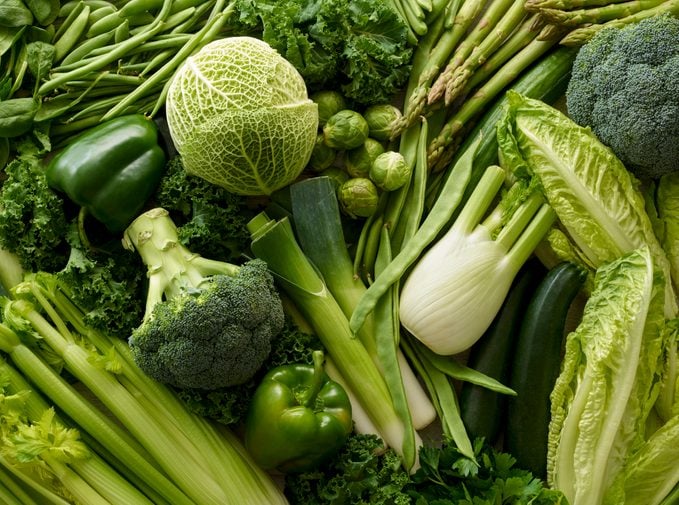
You eat foods that are green or contain food dyes
Eating green foods can turn your poop green, according to Harry Thomas, MD, a gastroenterologist in Austin, Texas. The most obvious culprit here are foods that are naturally green, notes colorectal surgeon, Lynn O’Connor, MD, director of Colon & Rectal Surgery of New York and section chief of colon and rectal surgery at Mercy Medical Center and St. Joseph Hospital in New York.
These include green vegetables (e.g. broccoli, asparagus, brussels sprouts, and leafy greens such as spinach, kale, and watercress), green herbs (such as parsley, basil, and cilantro), pistachio nuts, hemp seeds, matcha tea, and avocado.
The more green food you eat, the more likely it is your stool will appear green. (Don’t let that stop you from including these healthiest vegetables in your diet.)
However, foods that contain green or blue food coloring can also turn your poop green. (The blue dye can mix with the yellowish-green bile pigments in stool and thus make it look green.) These can include flavored drink mixes, ice pops, and birthday-cake icing, which is why green poop “isn’t uncommon” in babies and kids, according to New York City pediatrician, Alison Mitzner, MD.
However, this can also happen with purple or black dye too. In the most famous example of surprisingly green poop, an all-black Halloween burger introduced by Burger King in 2015 made the news when a side effect of the black dye (a mixture of other colors, including blue) was emerald-green stool.
You’re breastfeeding (and you’re a baby)
Dr. Mitzner says breastfed babies will often have greenish stool (anywhere from mustardy-yellow to green) because breast milk goes through the GI tract quickly.
This is also why babies who are breastfed tend to poop after every feed. (Here are the things your child’s pediatrician won’t tell you.)
You’re taking iron supplements
Taking iron supplements can cause your poop to appear green or even black (green stool can appear black, depending on the light). This is perfectly normal, but talk with your doctor if your poop are tarry-looking and black; they have red streaks; or if you experience any cramps or pain in the stomach. (Here are some foods you can eat to boost your iron levels.)
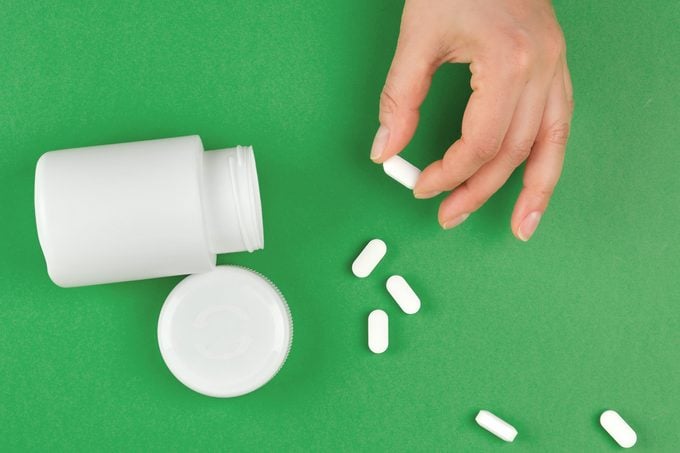
You’re taking certain medications
In addition to iron supplements, several other medications have been known to cause green poop, says Dr. Thomas. One such medication is the medroxyprogesterone (Depo-Provera), a contraceptive drug. In addition, antibiotics, which are known to affect gut flora, can cause stool to appear green, albeit primarily when the change in gut flora causes intestinal distress, according to a 2017 study in Yonsei Medical Journal.
“When we take antibiotics for an infection they have the ability to wipe out the good bacteria in the gut, explains Chicago-based family medicine physician, Kavita Shanker-Patel, MD. “This can affect the way our food is digested and therefore change the color of the stool.” (Here are 12 side-effects of antibiotics worth knowing before you pick up that prescription.)
You’ve had gallbladder removal surgery
Because bile is stored in the gallbladder, removal of the gallbladder (also known as a cholecystectomy, which is usually performed due to gallstones) means your body has no place to store bile. Excess bile is excreted through stool, which can appear green as a result.
In addition, since bile helps with fat digestion, the disruption of its “supply chain” (from liver to gallbladder to its use by the intestines in digestion) can lead to intestinal distress, which speeds the movement of the bowels and, as discussed above, can be responsible for poop appearing green. (Don’t miss these 9 superfoods you can eat to support a healthy gallbladder.)
You had bariatric surgery and developed “dumping syndrome”
One in 10 people who have bariatric surgery develop dumping syndrome, a group of intestinal distress symptoms marked by rapid gastric emptying, which is when food moves too quickly through the digestive tract. As discussed above, this is a set-up for green poop.
Dumping syndrome can also be experienced by those who have had a gastrectomy (stomach removal) or esophageal surgery. (Here are 5 signs and symptoms of esophageal cancer you should be aware of.)
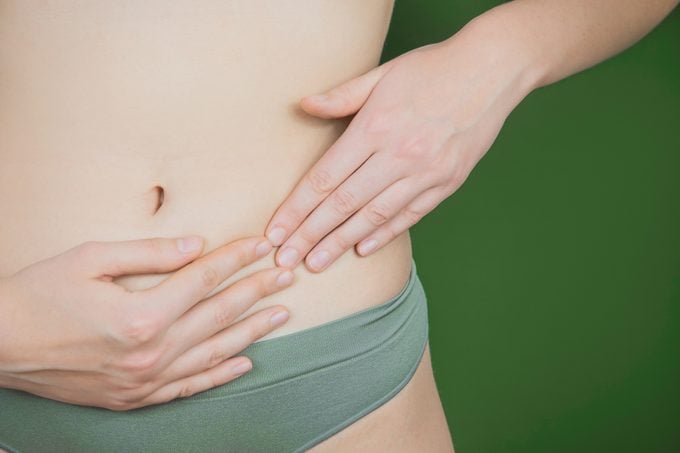
You have an inflammatory bowel disease
“Occasionally, when green poop is caused by rapid GI transit, the underlying cause could be an inflammatory bowel condition or disease (e.g. Crohn’s disease or ulcerative colitis),” according to Dr. Shanker-Patel. Inflammatory bowel conditions are autoimmune diseases where the immune system attacks and damages the digestive tract, causing pain, cramping, bleeding, malnutrition, and other serious problems.
Green stool accompanied by diarrhea and vomiting could also be an indication of another medical condition, like irritable bowel syndrome (IBS). IBS is a condition marked by pain and changes in bowel function (diarrhea, constipation, or both), but without signs of damage to the intestines and no other cause that could explain the symptoms. (Here are the diseases that can start with your gut bacteria.)
The last word on green poop
Ultimately, the “bottom” line here is that, as Dr. Shanker-Patel puts it, “Although green stools do not typically mean that something serious is going on, if you’ve had them for longer than a few episodes or if they are associated with blood in the stool or black tarry stool then you need to consult with your doctor.”


